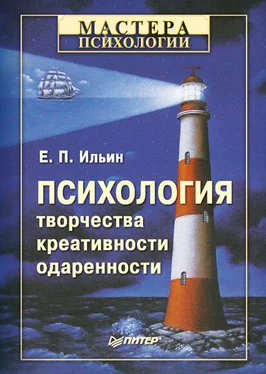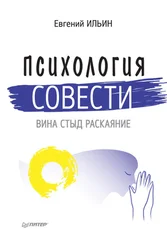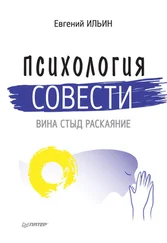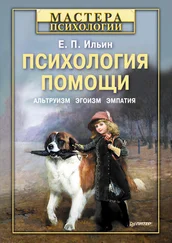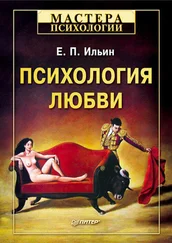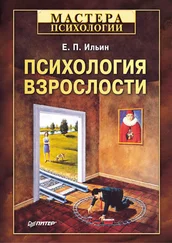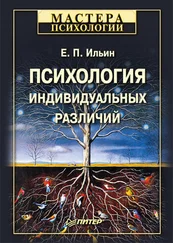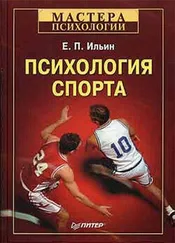of Theory Social Behavior. 1999. V. 29. № 3. P. 229–250. Osborn A. F. Applied Imagination: Principles and Procedures of Creative Thinking. NY. Scribner. 1948. O\' Quin K., Derks P. Humor and creativity: A review of the empirical literature // M. A. Runco (ed.). The
creativity handbook. NY. Hampton Press. 1997. Pacini R., Epstein S. The relation of retional and experiential information processing styles to personality,
basic beliefs and ratio-bias phenomenon // Journal of Personal and Social Psychology. 1999. V. 76.
№ 6. P. 972–987.
Papalia D., Olds S. Psychology. NY. McGraw-Hill. 1988. Parnes S. J. Guidebook for Creative Thinking. NY. 1963.
Parnes S. J. Educations and creativity // P. E. Vernon (ed.). Creativity, L. 1972.
Parnes S.J., Meadow A. Developmental of Individual Ctreative Talent // C. W. Taylor, F. Barron (eds.).
Scientific Creativity. NY. London. J. Willey. 1963. Percins D. N. The possibility of invention // R. Sternberg, T. Tardif (eds.). The nature of creativity.
Cambridge. Cambridge University Press. 1988. P. 362–385. Perki C. W. An Experimental Study of Imagination // American Journal of Psychology. 1910. № 21. Piage J. La formation du symbole chez l\'enfant. Neuchatel. Delachaux et Niestle. 1945. Pickford R. An experiment on insight // British Journal of Psychology. 1938.
Plomin R. Nature and nurture: An introduction to behavior genetics. Pacific Grove, CA, Brooks / Cole. 1990.
Polany M. Logic and psychology // American Psychologist. 1968. V. 23. № 1. P. 27–43.
Post F. Creativity and psychopathology: A study of 291 world-famous men // British Journal of
Psychiatry. 1994. V. 165. P. 22–34.
Price B. Primary biases in twin studies, review of prenatal and natal difference-producting factors in
monozygotic pairs // American Journal of Human Genetics. 1950. V. 2. № 4. Price D. K. Sciencesince Babilon. NY. 1961 .
Rascin E. Comparison of selenitic and literary ability: a biographical study of eminent scientists and man of letters on the nineteenth century // Journal of abnormal Psychology. 1936. V. 31. P. 20–35.
Ray M, Myers R. Practical intuition // W.H. Agor (ed.). Intuition in organization: Leading and managing productively. Newbury Park, CA, Sage, 1989.
Razik T. A. Psychometric Measurement of Creativity // P. E.Vernon (ed.). Creativity. L. 1972.
Reber A. S. Implicit learning and tacit knowledge // Journal of Experimental Psychology: General. 1989. V. 118. P. 219–235.
Reber A. S., Walkenfeld F. F., Hernstadt R. Implicit and explicit learning: Individual differences and IQ // Journal Experimental Psychology: Learning, Memory and Cognition. 1991. V. 1. P. 888–896.
Renzulli J. S. The tree-ring conception of giftedness: A developmental model for creative productivity // R. I. Sternberg, J. E. Davidson (eds.). Conceptions of giftedness. Cambridge. Cambridge University Press. 1986. P. 53–92.
Roe A. A Psychologist exsamines sixty-four eminent scientists // Scientific American. 1952. V. 187.
Rogers C. R. Towards a theory of creativity // P. E. Vernon (ed.). Creativity, L. 1972.
Rokeach M. In Pursuit of the Creative Process // G. A. Steiner (ed.). The Creative Organizaqtion.
Chicago. University of Chicago Press. 1965. Rorbach M. A. La pensee vivante. Regles et techniques de la pensee creatice. Paris. 1959. Rothenberg A. The Emerging Goddes: The Creative Process in Art, Science and other Fields. Chicago.
Chicago University Press. 1979. Rotter G. S., Portugal S. M. Group and individual effects in problem solving // Journal of Applied
Psychology. 1969. V. 53 (4). P. 338–341. Rugg H. Imagination. NY. Harper and Row. 1953.
Runco M. A. Childrens divergent thinking and creative ideation // Developmental Review. 1992. V. 12.
P. 233–264.
Runco M. A. Personal creativity: Lessons fromj literary critism // L. Dorfman et al. (eds.). Emotion, creativity and art. V. 1. Perm. Perm State Institute of Arts and Culture. 1997. P. 305–317.
Runco M. A., Sakamoto S. O. Experimental studies of creativity // R. J. Sternberg (ed.). Handbook of creativity. NY. Cambridge University Press. 1999. P. 62–92.
Sadker M., Sadker D. Is the OK Classroom OK? // Phi Delta Kappan. 1985. № 55. P. 358–367. Sadler-Smith E. Intuition-analysis style and approaches to studying // Educational Studies. 1999. V. 25.
№ 2. P. 159–174. Sartre J. L\'imaginaire. Gulimard. 1940. Schachtel E. G. Metamorphosis. NY. Basic Books. 1959.
Schneider F. W., Delaney J. G. Effect of individual achivement motivation on group problem solving
efficiency // Journal of Social Psychology. 1972. V. 86 (2). P. 291–298. Shirley D. A., Langan-Fox J. Intuition: A review of the literature // Psychological Reports. 1996. V. 79.
P. 563–684.
Shock N. W. The age problem in research workers: psychological viewpoint // Scientific Monthly. 1951. V. 72. Shouksmith C. Intelligence, creativity and cognitive style. NY. Wiley-interscience. 1970. Shuter-Dyson R. Le probleme des interactions entre heredite et milieu dans formation des aptitudes
musicales // A.Zenatti (ed.). Presse Universitaire de France. 1994. P. 211–249. Shuter-Dyson R., Gabriel C. The Psycholoogy of Musical Ability. London-NY. Methuen. 1981. Sen A. K., Hagtvet K. A. Correlations among creativity, intelligence, personality and academic achivement //
Perceptual and Motor Skills. 1993. V. 77 (2). P. 497–498. Silveira J. Incubation: The effect of interruption timing and length on problem solution and quality of
problem processing (цит. По: М. Айзенк. 2004. С. 345). Silverman L. K. What happens in the gifted girls? // C. J. Maker (ed.). Critical issues in gifted education:
Defensible programs for the gifted. Rockville, MD. Aspen. 1986. P. 281–317. Sim K. S., Duffy A. H. Knowledge transformers – a link between learning and creativity // AID-02
Workshop on Learning and Creativity. 2002. P. 1–10. Simon H. A. Making management decisions: The role of intuition and emotion // Acad. of Manag.
Executive. 1987. V. 1. № 1. P. 57–64. Simonton D. K. Genius, creativity and leaderships: Psychometric inquires. Cambridge. 1984. Simonton D. K. Creativity, leadership and chance // R. Sternberg, T. Tardif (eds.). The nature of
creativity. Cambridge. Cambridge University Press. 1988. P. 76–98. Simonton D. K. Individual differences, developmental changes and social context // Behavioral and Brain
Science. 1994. V. 17. P. 552–553. Simonton D. K. Talent and its development: An emergenic and epigenetic model // Psychological Review.
1999. V. 3. P. 435–457.
Simonton D. K. Creativity: Cognitive, personal, developmental and social aspects // American
Psychologist. 2000. V. 55. P. 151–158.
Singer J. L. Daydreaming: An introduction to the experimental study of inner experience. NY. Random
Housw. 1966.
Sinnot E. W. The creativeness of life // H. H.Anderson (ed.). Creativity and its cultivation. NY. Harper. 1959. Sloboda J. A. The acquisition of musical performance expertise: deconstructing the «talent» account of
individual differences in musical expressivity // K. A. Ericson (ed.). The road to excellence: the
acquisition of expert performance in the arts and sciences. Erlbaum. 1996. Smith S. M. Fixation, incubation and insigth in memory and creative thinking // S. M. Smith, T. B. Ward,
Читать дальше
Конец ознакомительного отрывка
Купить книгу
